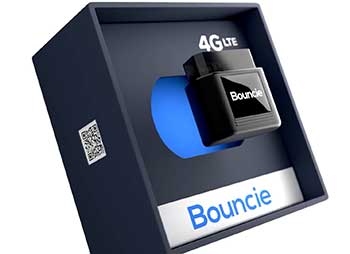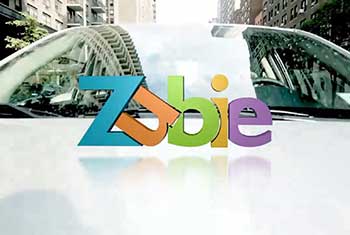Installing a telematics device in your vehicle allows you to monitor its location, usage, and performance. Two options on the consumer market are Bouncie and Zubie. But how do these connected car gadgets compare when it comes to features, capabilities, and overall value?
This comprehensive guide will analyze the pros, cons, similarities, and differences between Bouncie and Zubie. Read on to learn which option may be better suited for your needs.
A Brief Comparison Table
| Feature | Bouncie | Zubie |
| Price | $10/month, hardware free | $13-$15/month, $70 hardware |
| Tracking Features | Location, basic driving stats | Enhanced diagnostics and maintenance |
| App Experience | Simple, streamlined | Robust but complex |
| Hardware | Compact, minimalist | Slightly larger but still discreet |
| Best For | Affordability and simplicity | Maximum vehicle insight |
Overview of Bouncie and Zubie
First, let’s look at what exactly these products are and the core problems they aim to solve for drivers.
What is Bouncie?

Bouncie is a small telematics device that plugs into your vehicle’s OBD-II port. It transmits data like location, mileage, speed, battery voltage, and engine diagnostics to the Bouncie mobile app.
Bouncie aims to help users monitor driving habits, locate parked vehicles, and get alerts for things like speeding or maintenance issues. It offers basic tracking features at an affordable price point.
What is Zubie?
Like Bouncie, Zubie is a telematics device that plugs into your car’s OBD-II diagnostic port. It tracks location, driving data, vehicle diagnostics, and can connect to other smart home devices.
Zubie focuses more heavily on vehicle health monitoring and maintenance reminders. It also integrates with IFTTT for expanded smart vehicle capabilities. Zubie costs more but provides robust options for drivers who want detailed vehicle insight.
Comparison Between Bouncie And Zubie
Hardware Design and Installation

Both Bouncie and Zubie use a small adapter that plugs into the OBD-II port, typically found under the steering wheel. Installation only takes a few minutes – simply plug it in, create an account and connect to the device via Bluetooth from your smartphone.
The Bouncie device itself is quite compact, similar in size to a large USB drive. The Zubie hardware is slightly bigger but still unobtrusive. Neither device has any wires or additional components that need mounting.
For hardware, Bouncie wins when it comes to small size and minimalist design. But both options easily tuck out of sight and don’t interfere with driving once installed.
Tracking and Alert Features
Core features like location tracking, geo-fencing, and alerts for things like speeding or unauthorized vehicle use are available on both Bouncie and Zubie. You’ll get basic insight into driving habits and vehicle usage from either platform.
However, Zubie offers additional options such as:
- Enhanced diagnostics for battery, emissions, and engine codes
- Maintenance reminders and logging
- Driver scoring and coaching insights
- Integrations with other smart home and IFTTT devices
So while Bouncie covers the basics, Zubie provides deeper analysis of your car’s operation and health. Zubie also lets you customize alerts and integrate with other connected services. It’s better suited for DIYers who want granular detail.
Mobile App Experience
Bouncie and Zubie both offer iOS and Android apps to view driving data, location, and alerts from your device tracker.
Bouncie’s app provides real-time location lookup from a map view, along with basic trip history and stats on speed, miles, etc. It’s simple and streamlined.
Zubie’s app delivers much more in-depth data on vehicle diagnostics, driving behavior, and maintenance needs. The app experience is more robust but also more complex.
For quick checking location or basic stats, Bouncie’s app gets the job done. Zubie offers a fuller view of your vehicle’s operation but its app takes more time to navigate and digest.
Cost and Fees
One of the biggest differences between Bouncie and Zubie is the price and fees.
Bouncie only charges $10 per month for cellular service, with no commitment. The hardware itself is free. It’s one of the most affordable options on the market.
Zubie costs $13 per month for cellular service when paid annually, or $15 month-to-month. The hardware is $70. So it’s quite a bit pricier, especially if paying month-to-month.
Bouncie shines when it comes to budget-friendly pricing. Zubie ultimately costs more but does offer additional value for the money that serious DIY-ers may consider worthwhile.
Customer Support
Both brands receive positive reviews for customer support and ease of getting set up. Bouncie offers email and online chat support. Zubie provides email, phone, chat, and forum options.
Being smaller companies, you’ll get more personalized support than dealing with a huge corporation. Either option should provide a satisfactory support experience for most users.
Also Read: Choose Between NOCO Boost Plus And Boost X.
Frequently Asked Questions (FAQ)
No, Bouncie requires the vehicle to be on and transmitting data through the OBD-II port in order to track location or pull diagnostics. It cannot actively track a parked car that’s turned off. However, it does log the last parked location.
Bouncie is typically used for basic vehicle tracking to monitor driving habits or locate your parked car. Its affordable price makes it popular for parents tracking teenage drivers or keeping tabs on senior drivers as well.
Bouncie devices transmit data over the AT&T 4G LTE network. As long as your vehicle is in an area with cellular service, Bouncie will have connectivity. The monthly fee includes unlimited data usage on AT&T.
Small OBD-II plug-in devices like Bouncie and Zubie are the easiest way to track a car’s location and driving data. They can be installed in minutes with no tools required and use a cellular connection to transmit data. Much simpler than hardwired solutions!
Also Read: Comparison Between Tracfone And T-Mobile.
Conclusion
When choosing between Bouncie vs Zubie for your connected car needs, key factors to consider include:
- Budget – Bouncie is much more affordable, best for basic location tracking
- Features – Zubie offers many more options for vehicle diagnostics and integration
- Ease of Use – Bouncie has the simpler app and straightforward tracking
- DIY Insight – For maximum vehicle data, Zubie provides more in-depth analysis
In summary, Bouncie excels on price and simplicity, while Zubie packs richer features for the DIY driver who wants total vehicle insight.
Assess your budget, how much detail you need, and ease of use preferences. This will steer you towards the right option between user-friendly Bouncie or powerful Zubie.
With either device, you’ll gain peace of mind knowing your vehicle’s location and status, and may even save on maintenance costs through preventative alerts. Drive safer, monitor driving habits, and take control of your vehicle expenses with the help of telematics.
